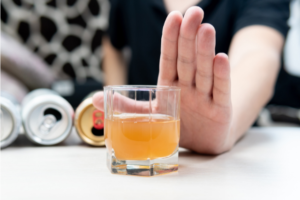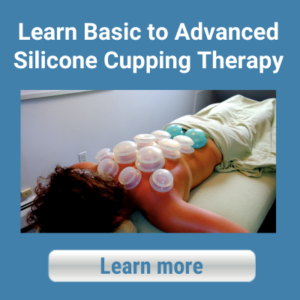Among the various treatments available to help support you while recovering from substance abuse – from counseling to equine therapy, addiction treatment centers are beginning to recognize massage therapy’s significant role.
Although massage therapy for addiction recovery may be considered a relatively unconventional approach, some rehab programs are beginning to add it to their holistic treatment offerings.
Massage therapy is especially useful in dual diagnosis treatment for addiction and depression, pain management for those coming off drugs and alcohol, and stress relief.
If you or someone you care for has tried other methods and are looking for a new way to overcome substance abuse, massage therapy can help.
Massage Therapy for Addiction Recovery
Consider the following evidence-based benefits of massage for those struggling with addiction.
1. Helps with Abstinence

A study of the use of Mindful Awareness in Body-oriented Therapy (MABT) evaluated the effect massage therapy had on women in outpatient addiction recovery programs. Researchers found that women who participated in regular massage therapy were significantly more likely to remain sober several months post-treatment.
Many women in the study showed total abstinence after treatment. Stress and coping theories suggest that introducing skills to cope with stress (such as massage therapy) increases a person’s ability to abstain from substances.
These skills also increase self-esteem and confidence, which are both necessary and effective in reducing substance abuse.
2. Decreases Cravings and Social Pressures

The study above also concluded that those who received massage therapy indicated that cravings and social pressures were significantly less related to relapse than their peers who didn’t participate in massage therapy.
This effect can be due to several reasons, such as having a healthy coping outlet when cravings and outside pressures arise. With a healthy tool in place, you’re equipped to handle challenges like this after treatment when you’re on your own.
3. Releases Tension

One of the primary benefits of massage therapy is the release of tension. Stress, muscle tension, and pain can all contribute to addiction and affect the recovery process.
Researchers have found that massage therapy can increase a person’s awareness of tension and sensory symptoms of stress and their typical patterns of responding to stress (both of which are important for relapse prevention).
Massage therapy offers a helpful, physical method for relieving some of that pain and tension, reducing cravings and the need for drugs.
4. Reduces Withdrawal-Related Anxiety

Withdrawal can bring on intense feelings of anxiety. Depending on the substance, withdrawal might involve extremely uncomfortable physical symptoms, such as sweating, vomiting, muscle aches, or seizures. Mental and emotional effects can also include panic attacks, hallucinations, agitation, insomnia, irritability, and other effects on the mind.
Each of these effects and more can cause a person to feel anxious. Because of this, many people avoid detoxing or quitting the use of a substance as they worry over the inevitable mental, physical, and emotional consequences of doing so. But what if many of these symptoms could be significantly alleviated or eliminated?
One study looked at the effectiveness of massage therapy for those withdrawing from psychoactive drugs. The results found that chair massage significantly reduced feelings of anxiety for the participants in inpatient withdrawal programs.
Multiple other studies have corroborated the effectiveness of massage in reducing anxiety disorders within the context of addiction and outside of it. Massage therapy is a powerful tool in relieving the symptoms of anxiety and promoting relaxation.
5. It’s an Empowering Tool

One of the most challenging factors in addiction and recovery is the feeling of being powerless. The chemical patterns in the brain and physical dependence on a substance can leave many wondering if they’ll ever be able to regain control over their physical and mental health.
Massage therapy enables those in recovery to respond more effectively to stress, unforeseen life events, and negative emotions. Not only this but there are ways to conduct self-massage, enabling recovering individuals to take their stress management into their own hands.
Self-massage might involve the use of tools, stretching, and other techniques. If you’re recovering from an addiction, you can easily incorporate self-massage methods into your daily routine to help relapse prevention, stress reduction, and pain relief.
Massage For Addiction Recovery: A Useful Tool

If you’re looking into addiction treatment options for yourself or a loved one, you might consider rehab facilities that offer massage therapy as a holistic treatment method.
This is an all-natural, chemical-free, and affordable treatment method for those interested in exploring alternative ways in addiction recovery. Having the tools to overcome addiction can boost you to start or continue your recovery process.
Bio: Hannah Bennett is a content specialist for AddictionResource.net, an informational guide that provides resources for those struggling with addiction and their loved ones. Addiction Resource speaks on topics surrounding addiction, substance use disorders, and mental health disorders.


